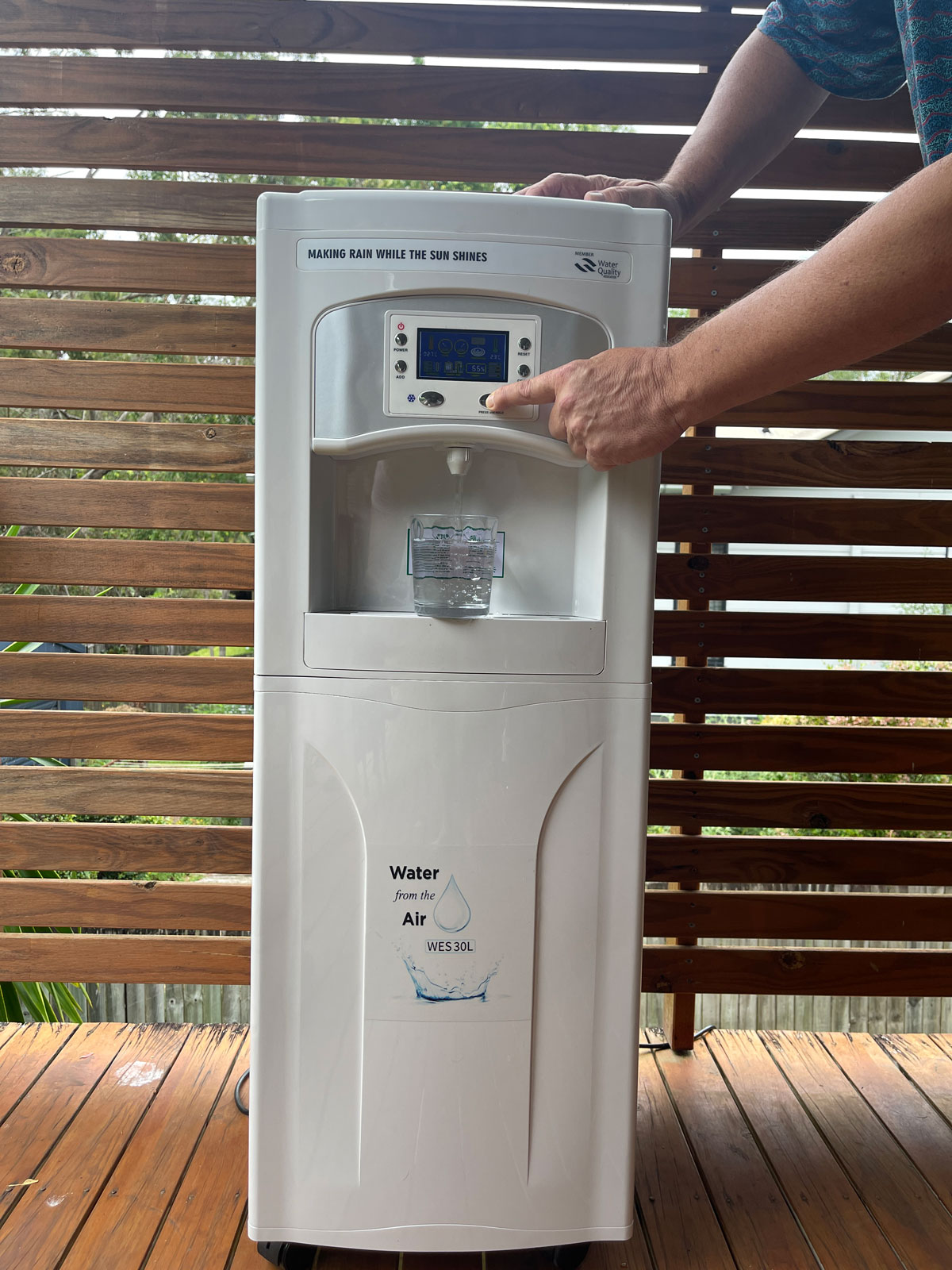Atmospheric Water Generators (AWGs), more accurately termed Atmospheric Water Harvesters, have gained significant attention in recent years. These machines extract water from the humidity in the ambient air and are available in various sizes, with capacities ranging from 10 liters to over 1,000 liters per day. In this article, we will explore the most efficient AWGs available for purchase and compare them based on their energy consumption.
How Do Atmospheric Water Generators Work?
AWGs use different technologies to extract water from the air. The most common method involves condensation over a cool surface, using a vapor compression refrigeration cycle. Other techniques include desiccant and hydrophilic salt absorption. Currently, only two companies—Source Water (Hydropanel) and Genesis Systems (Watercube)—offer commercial desiccant-based AWGs. Research is ongoing on more energy-efficient alternatives, such as gel, metal-organic frameworks, zeolite, and hydrophilic salts, but no commercial products are available yet.
Common Applications of AWGs
Refrigeration-based AWGs have found a niche in office spaces where conventional water supply options are unavailable. They are often used as water dispensers in office corridors and conference halls, offering both hot and cold water at the press of a button. While convenient, this feature increases energy consumption. Manufacturers market AWGs as eco-friendly devices that eliminate the need for pipes, plastic bottles, and delivery trucks. However, for consumers looking to minimize operational costs, energy efficiency is a crucial factor.
Comparing AWGs Based on Efficiency
This list focuses on refrigerant-cycle AWGs designed for household use, with capacities between 10 and 30 liters per day. The units are ranked based on their water production efficiency, measured in liters per kilowatt-hour (L/kWh).
Top 12 Household AWGs by Efficiency
1. Genny by Watergen
- Capacity: 30 liters/day
- Efficiency: 3.3 L/kWh
- Price: $3,500
- Watergen is a pioneer in AWG technology, making Genny one of the most established options.
2. Airqua 30L
- Capacity: 30 liters/day
- Efficiency: 3.3 L/kWh
- Price: $3,000
- This Australian-made AWG offers the same efficiency as Genny but at a lower price.
3. Nube SS30
- Capacity: 30 liters/day
- Efficiency: 2.8 L/kWh
- Price: $1,950

4. Majik Water
- Capacity: 25 liters/day
- Efficiency: 2.6 L/kWh
5. Puairwater PAW-90HE
- Capacity: 30 liters/day
- Efficiency: 2.5 L/kWh
- Price: $1899
6-8. Watair PW-HR25, Drinkowater 25L, and FND F20
- Capacity: 25 liters/day
- Efficiency: 2.1 L/kWh
9-10. Solaris Water Generator A20 and Powerology PAWPSL
- Capacity: 10 liters/day
- Efficiency: 1.8 L/kWh
- Price: $1,690.00
11. DrinkAir 30L
- Capacity: 30 liters/day
- Efficiency: 1.6 L/kWh
- Price: $3100
12. Skywell 5TE
- Capacity: 23 liters/day
- Efficiency: 1.4 L/kWh
- Price: $3,295.00
Key Takeaways on AWG Efficiency
- Larger capacity machines tend to be more efficient – Smaller units with a 10-liter capacity generally have lower efficiency.
- Air-to-air heat exchangers improve efficiency – This feature allows the outgoing cold air to cool the incoming warm air, making it easier to reach the dew point.
- Humidity levels impact water production – The listed capacities are based on an environment with 30°C and 80% relative humidity, corresponding to an absolute humidity of 24.2 g/m³ of air. Production may be lower in colder or drier climates.
Filtration and Water Quality
Most AWGs come with 4 to 6 stages of filtration, including:
- Sediment Filter
- Ultra-Fine Membrane Filter
- Mineralization Filter
- PAC (Post Activated Carbon) Filter
- UV Sterilization
These filtration systems ensure that the collected water is safe for consumption by removing contaminants and bacteria.
Conclusion
Atmospheric Water Generators provide an innovative way to source drinking water in areas where traditional supply methods are impractical. While energy efficiency is a major consideration, additional factors like price, capacity, and filtration technology also play a crucial role in determining the best AWG for your needs. For those prioritizing efficiency, Genny by Watergen and Airqua 30L emerge as the top choices, offering the best balance of production capacity and energy consumption.
Are you considering an AWG for your home or office? Let us know your thoughts in the comments!
